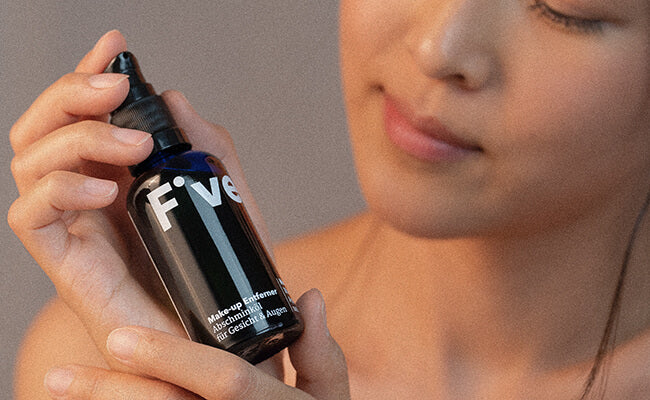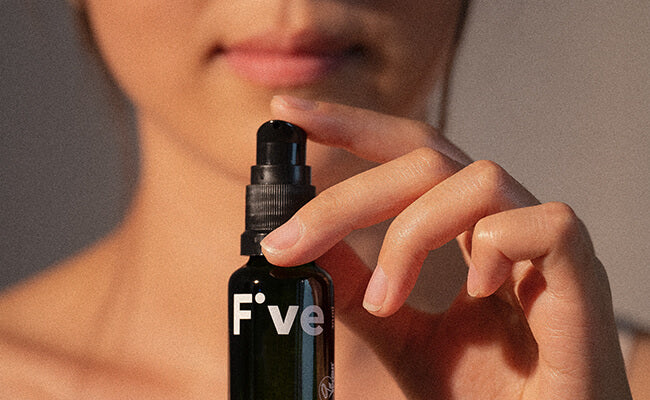Awaking Beauty – Rosenwasser macht müde Haut wieder munter
Photo by Paweł Czerwiński on Unsplash
Im Tal der Rosen – der Weg zum Bio-Rosenhydrolat
Es ist noch stockfinster, wenn bei den Rosenpflückern der Wecker klingelt. Um 4 Uhr früh beginnt die Ernte auf Bulgariens pink schimmernden Feldern. Doch es lohnt sich, denn sie bringen das begehrteste Rosenöl der Welt hervor.
Wenn die Temperaturen noch frisch sind und Tauperlen auf den Damaszener Rosen glitzern, ist ihr Ölgehalt am höchsten. Mit der aufsteigenden Sonne nimmt er ab und ist schon mittags auf 30–40% gesunken. Deshalb ist der Zauber normalerweise auch schon um 9 Uhr wieder vorbei. Und trotzdem braucht es 1 Tonne Blüten um nur bis zu 300 Gramm Rosenöl zu gewinnen!
In jedem Fläschchen unseres FIVE Gesichtsserums mit Bio-Rosenblütenhydrolat als Hauptzutat steckt also ein ganzes Meer von Rosenblüten. Wir setzen dabei auf Rosen aus ökologischem Anbau. Die wertvollen Wirkstoffe der Bio-Blüten werden durch Wasserdampf-Destillation in einem Hydrolat konzentriert, das neben viel Feuchtigkeit auch die positiven Eigenschaften der Damaszener Rose mitbringt. Und da ist für jeden Hauttyp etwas dabei …
So gut tut Rosenblütenhydrolat deiner Haut
Wie Cleopatras legendäres Creme-Bad ist auch die Damaszener Rose einer dieser Schönheitstipps aus der Antike, die die Zeit überdauern. Und zwar, weil sie einfach genial sind. Hier meine Top-5-Gründe, warum du Rosenwasser in der Hautpflege lieben wirst:
-
Spendet Feuchtigkeit
Das Hydrolat enthält die wichtigsten Eigenschaften des Rosenöls und ergänzt sie um reichlich Flüssigkeit. Trockene Haut wird optimal versorgt und fühlt sich rundum gepflegt an. Ausserdem ist eine gute Hautfeuchtigkeit der Schlüssel zu einem frischen, jugendlichen Teint. Sie beugt Trockenheitsfältchen und frühzeitiger Hautalterung vor.
-
Beruhigt sensible Haut
Rosenhydrolat wirkt entzündungshemmend und reguliert den pH-Wert. So trägt es zu einem schnelleren Abklingen von Rötungen und empfindlichen Stellen bei oder verhindert, dass deine Haut überhaupt erst so aus dem Gleichgewicht kommt.
-
Glättet die Haut
Der Feuchtigkeits-Kick polstert dein Gewebe auf und lässt dich frischer und straffer aussehen. Gleichzeitig enthält Rosenhydrolat wertvolle Nährstoffe für ein ebenmässiges, glattes Hautbild.
-
Wirkt abschwellend
Geschwollene Lider? Bye-bye! Rosenwasser wirkt erfrischend auf die Haut und fördert die Durchblutung. Das unterstützt den Abfluss angestauter Lymphflüssigkeit, die dafür sorgt, dass sich über Nacht Tränensäcke bilden.
-
Stärkt den Zellschutz
Rosenwasser enthält einen Vitamin-Cocktail, in dem unter anderem Vitamin E steckt. Dieses wirkungsvolle Antioxidans beugt oxidativen Zellschäden vor. Die werden durch Stress, Sonneneinstrahlung oder einfach die vielen Umwelteinflüsse, denen du dich nur schwerlich entziehen kannst, verstärkt. Dein Zellschutz gehört zu den Top-Massnahmen für ein frisches Aussehen!
Wir empfehlen bei feuchtigkeitsarmer Haut: Das leichte FIVE Gesichtsserum mit Rosenwasser und Hyaluron sorgt für hydratisierte Haut und ein frisches Aussehen.
Rosenwasser bei unreiner Haut
Bei vielen Inhaltsstoffen, die speziell empfindlicher Haut guttun, stehen reichhaltige Pflege und ein Minimum an Irritation im Mittelpunkt. Rosenhydrolat punktet darüber hinaus auch bei unreiner Haut, deshalb möchte ich diesen Punkt kurz hervorheben.
Rosenwasser enthält Gerbstoffe und wirkt antibakteriell. Es packt das Übel bei der Wurzel, indem es die Erreger von Pickeln abtötet und dafür sorgt, dass sich die Poren zusammenziehen – hallo feineres Hautbild! Gleichzeitig reguliert das Hydrolat die Talgproduktion und gilt als nicht-komedogen, verklebt die Poren also nicht. So kommt es nicht zu einem Teufelskreis von Austrocknen und Nachfetten, wie es bei manch anderem, aggressiveren Inhaltsstoff der Fall ist.
Beim Rosenhydrolat spielen seine antibakterielle und seine entzündungshemmende Wirkung wunderbar zusammen. Deshalb ist es auch ein beliebter Inhaltsstoff milder Gesichtswässer und Reinigungslotionen. In Feuchtigkeitsseren sorgt es für Pflege mit einem wunderbar unbeschwerten Hautgefühl.
Warum Feuchtigkeitspflege Wasser enthalten muss
Vielleicht bist du überrascht, dass ich so ein Fan von Rosenwasser bin. Falls du meinen Blog schon länger verfolgst oder etwas auf der FIVE Webseite gestöbert hast, magst du dich an meinen beliebten Artikel «Warum Wasser nicht in, sondern unter die Pflege gehört» erinnern.
Es stimmt, bei den meisten unserer Produkte setzen wir auf wasserlose Formulierungen, um weniger konservieren zu müssen. Feuchtigkeitsseren kommen allerdings nicht ohne Feuchtigkeit aus. Sie enthalten meist Inhaltsstoffe mit hygroskopischer Wirkung wie Glycerin oder Hyaluronsäure. Indem diese Stoffe Wasser geradezu magnetisch aus ihrer Umgebung anziehen, verhindern sie, dass die Feuchtigkeit nach dem Auftragen von der Haut verdunstet. Für diese durstigen Moleküle bringen Feuchtigkeitsseren quasi ihr eigenes Getränk mit. Ein Muss in diesem Fall.
Das bedeutet automatisch, dass Konservierung von Nöten ist. Doch keine Sorge, das geht auch auf natürliche Weise und sehr schonend für empfindliche Haut. Wie wir konservieren und was für die Haltbarkeit wichtig ist, verrät dir der Artikel «Natürliche Konservierungsstoffe – es geht auch ohne Alkohol».
FIVE Gesichtsserum mit Rosenwasser erfrischt und hydratisierte jede Haut
Das FIVE Gesichtsserum setzt auf Rosenhydrolat
Feuchtigkeit gehört also in die Feuchtigkeitspflege wie Äpfel in den Apfelkuchen. Das geht entweder in Form von purem Wasser, Aloe Vera Direktsaft oder eben feinen Hydrolaten, wie unser Rosenblütenhydrolat. Weil die zusätzlich wertvolle Eigenschaften der Pflanze mitbringen, aus der sie gewonnen werden, setzen wir für das FIVE Gesichtsserum auf diesen Feuchtigkeitsspender mit Extras.
Rosenblütenhydrolat überzeugt mit seinem Gesamtpaket: hautklärend, beruhigend, porenverfeinernd. Und was für ein Duft! Für Pflege pur verwenden wir Bio-Rosenhydrolat von der Damaszener Rose und kombinieren es mit ...
- Pflanzlichem Bio-Glycerin und L-Arginin für extra viel langanhaltende Feuchtigkeit
- Hyaluronsäure für mehr Elastizität und eine bessere Regeneration
- Und einem Ferment veganer Milchsäurebakterien für bessere Hautdurchfeuchtung und Haltbarkeit





